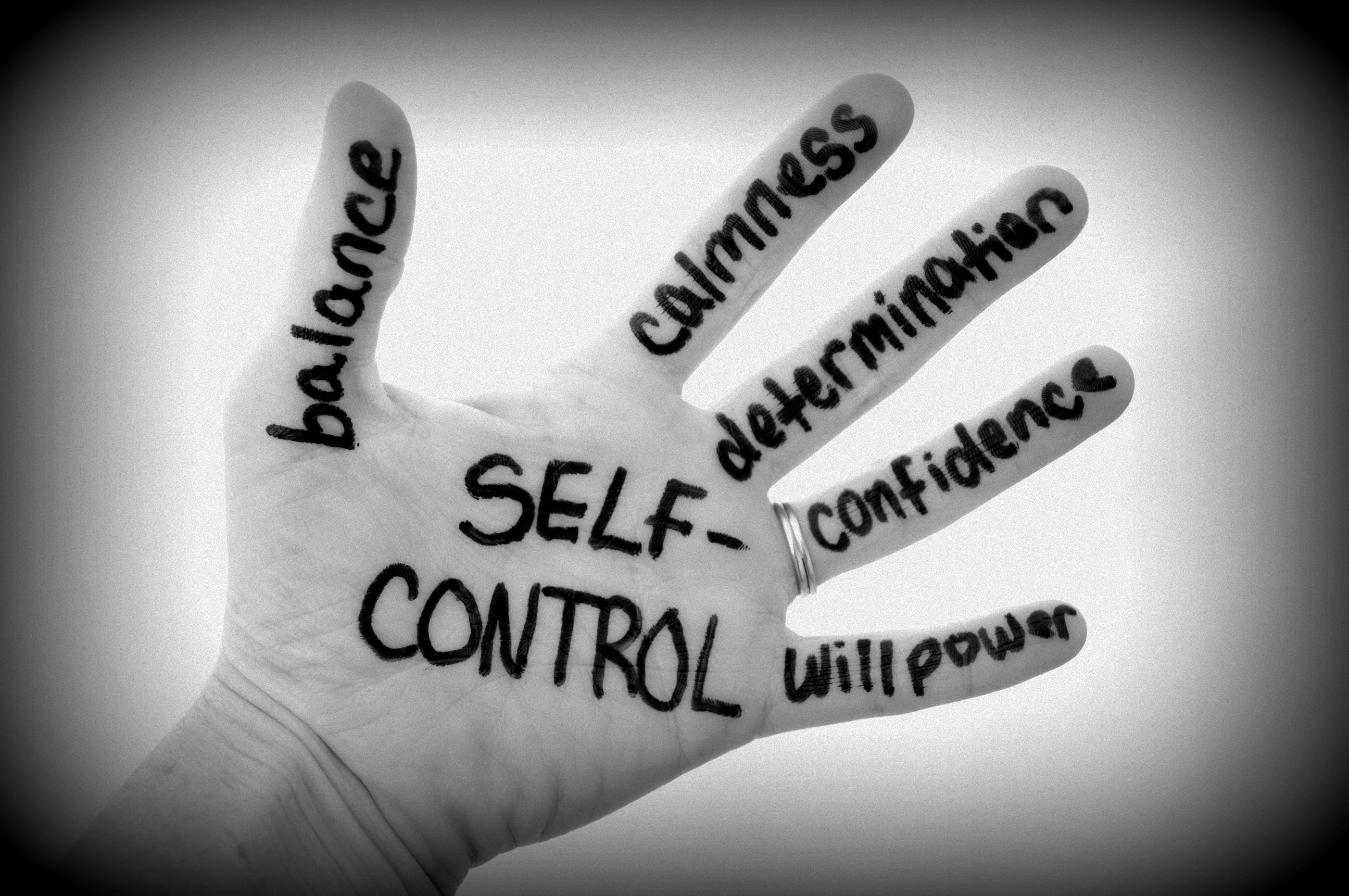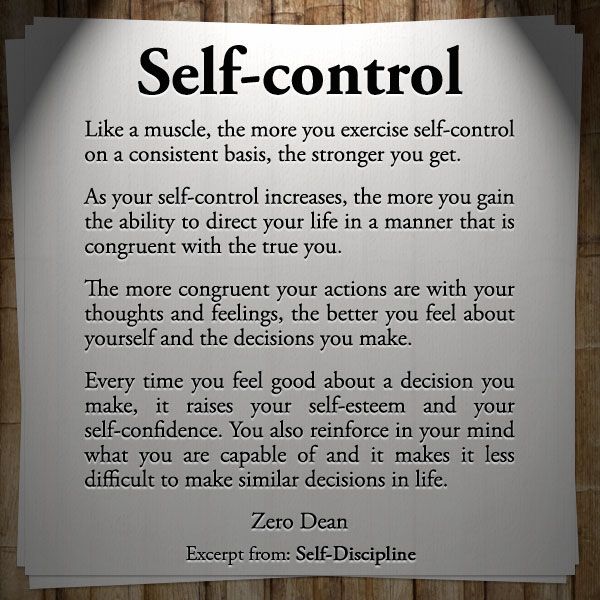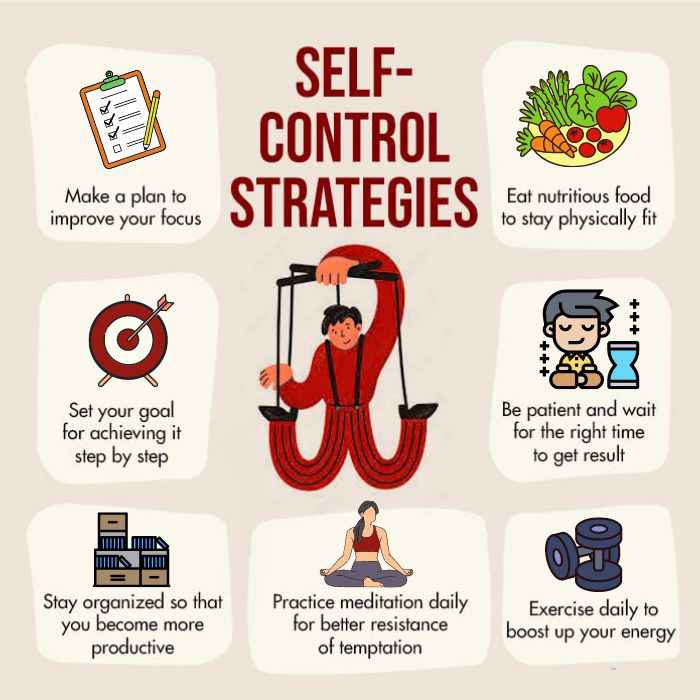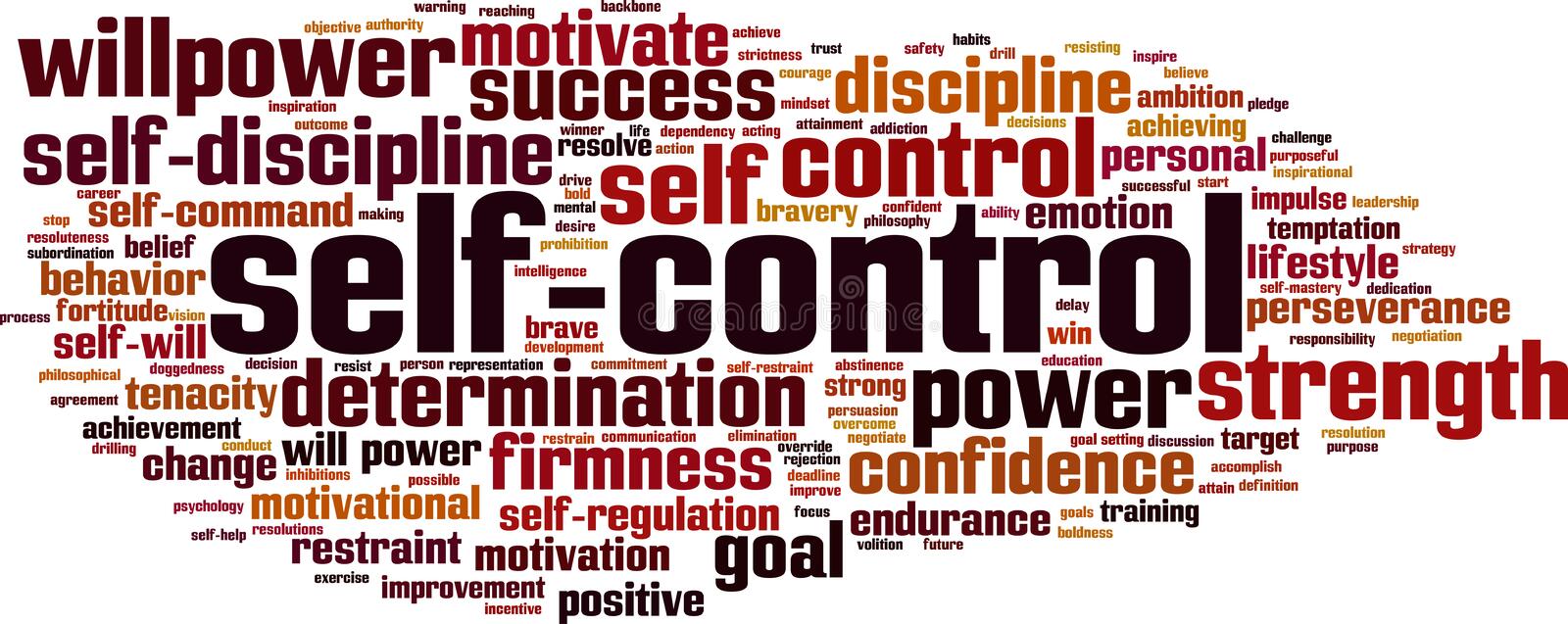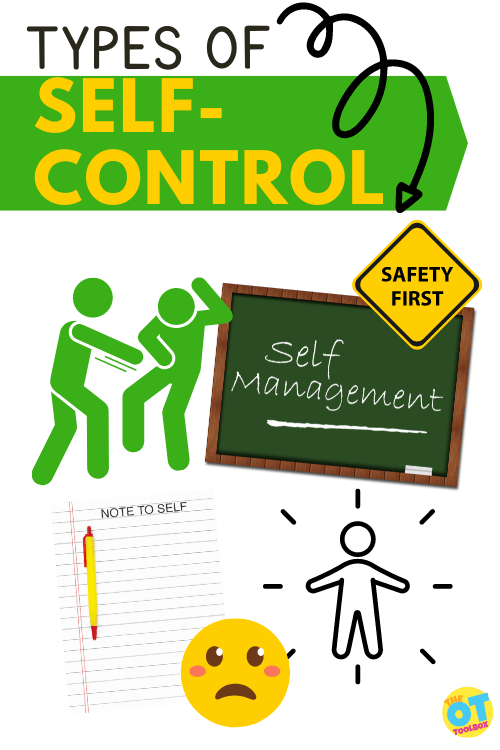What Is The Definition Of Self Control

In moments of intense temptation or overwhelming emotion, the ability to pause, reflect, and choose a considered response rather than a reactive one defines the very essence of self-control. But beyond this intuitive understanding, what truly constitutes self-control, and how is it defined by experts in the fields of psychology, neuroscience, and beyond?
The concept of self-control, often used interchangeably with terms like willpower, self-regulation, and discipline, is the capacity to manage one's impulses, emotions, and behaviors in the service of long-term goals. It involves consciously overriding immediate desires or urges to act in a way that aligns with one's values and aspirations. This article delves into the multifaceted definition of self-control, exploring its psychological underpinnings, neurological basis, and practical implications for individuals and society.
Psychological Perspectives on Self-Control
Psychologists view self-control as a crucial executive function, essential for navigating the complexities of social life and achieving personal success. According to the American Psychological Association, self-control is the "ability to regulate one's emotions, thoughts, and behavior in the face of temptations and impulses." This regulation involves inhibiting unwanted behaviors, delaying gratification, and maintaining focus on long-term objectives.
Stanford University psychologist Walter Mischel's famous "Marshmallow Test" provided early insights into the predictive power of self-control. The study showed that children who were able to delay gratification by waiting for a larger reward tended to have better life outcomes, including higher academic achievement and improved social skills. This groundbreaking research highlighted the significance of self-control as a fundamental life skill.
Roy Baumeister, a prominent social psychologist, proposed the "Ego Depletion" theory, suggesting that self-control is a finite resource that can be depleted through use. Engaging in acts of self-control, like resisting a tempting snack or suppressing an emotional outburst, can temporarily diminish one's capacity for subsequent self-regulation. While the ego depletion theory has faced some challenges and refinements in recent years, it has spurred significant research into the mechanisms underlying self-control and its limitations.
The Neuroscience of Self-Control
Neuroscience research sheds light on the brain regions and neural processes involved in self-control. The prefrontal cortex (PFC), particularly the dorsolateral prefrontal cortex (dlPFC), plays a critical role in executive functions, including planning, decision-making, and impulse control. This area of the brain allows individuals to mentally simulate future consequences of their actions, and choose behaviour that will get best result.
Studies using brain imaging techniques, such as functional magnetic resonance imaging (fMRI), have shown that the PFC is more active when individuals are engaged in tasks requiring self-control. Furthermore, the strength of connections between the PFC and other brain regions, such as the amygdala (which processes emotions) and the nucleus accumbens (which is involved in reward processing), is associated with individual differences in self-control abilities. These connections play a role in regulating the effect of emotion during self control activities.
Dopamine, a neurotransmitter associated with reward and motivation, also plays a complex role in self-control. While dopamine signaling can drive impulsive behavior in pursuit of immediate gratification, it also contributes to goal-directed behavior and the anticipation of future rewards. The balance between these competing dopamine pathways is crucial for effective self-regulation.
Practical Implications and Cultivating Self-Control
Understanding the definition and mechanisms of self-control has significant implications for various aspects of life, including health, finances, and relationships. Individuals with higher levels of self-control tend to make healthier choices, manage their finances more effectively, and maintain more stable and fulfilling relationships.
Fortunately, self-control is not a fixed trait; it can be developed and strengthened through practice and targeted interventions. Strategies such as mindfulness meditation, cognitive behavioral therapy (CBT), and implementation intentions (planning specific actions in advance) have been shown to improve self-regulation skills.
Furthermore, creating supportive environments that minimize temptations and promote healthy habits can significantly enhance self-control. This might involve removing unhealthy snacks from the home, setting up automatic savings plans, or surrounding oneself with supportive friends and family members.
Looking Ahead
The study of self-control continues to evolve, with ongoing research exploring the interplay between genetics, environment, and individual experiences in shaping self-regulatory abilities. As our understanding of self-control deepens, we can develop more effective interventions to promote well-being and empower individuals to achieve their goals.
Ultimately, the ability to define self-control accurately and apply its principles effectively is essential for personal growth and societal progress. By fostering self-regulation skills, we can create a more resilient, responsible, and fulfilling future for ourselves and generations to come.
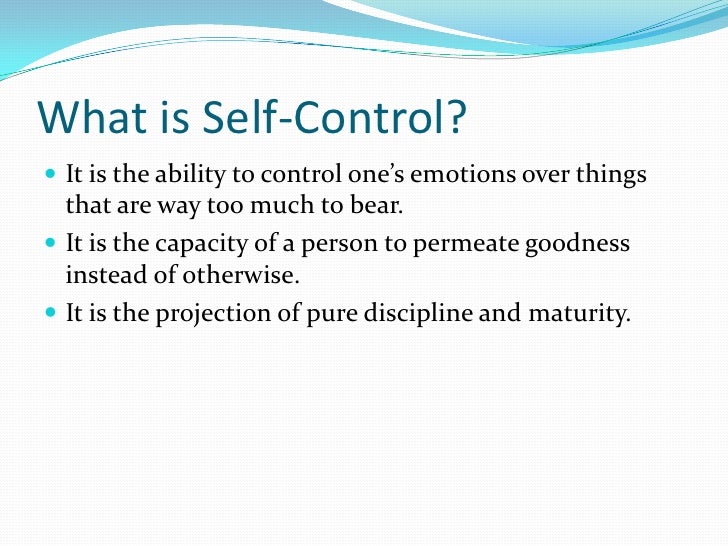
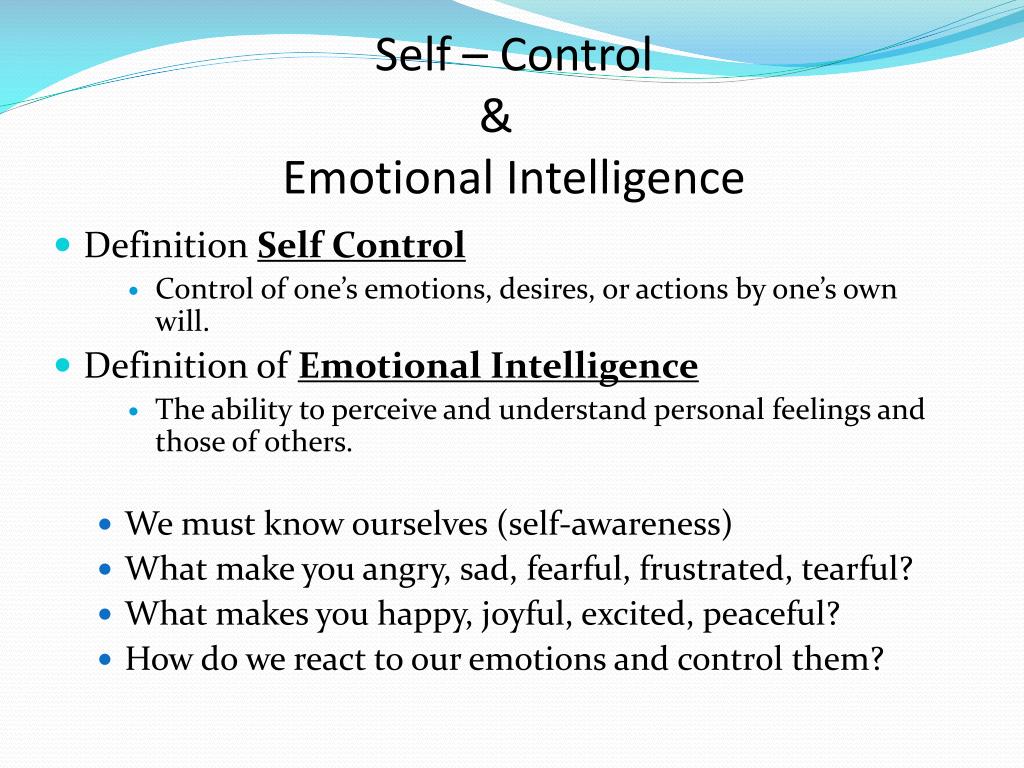


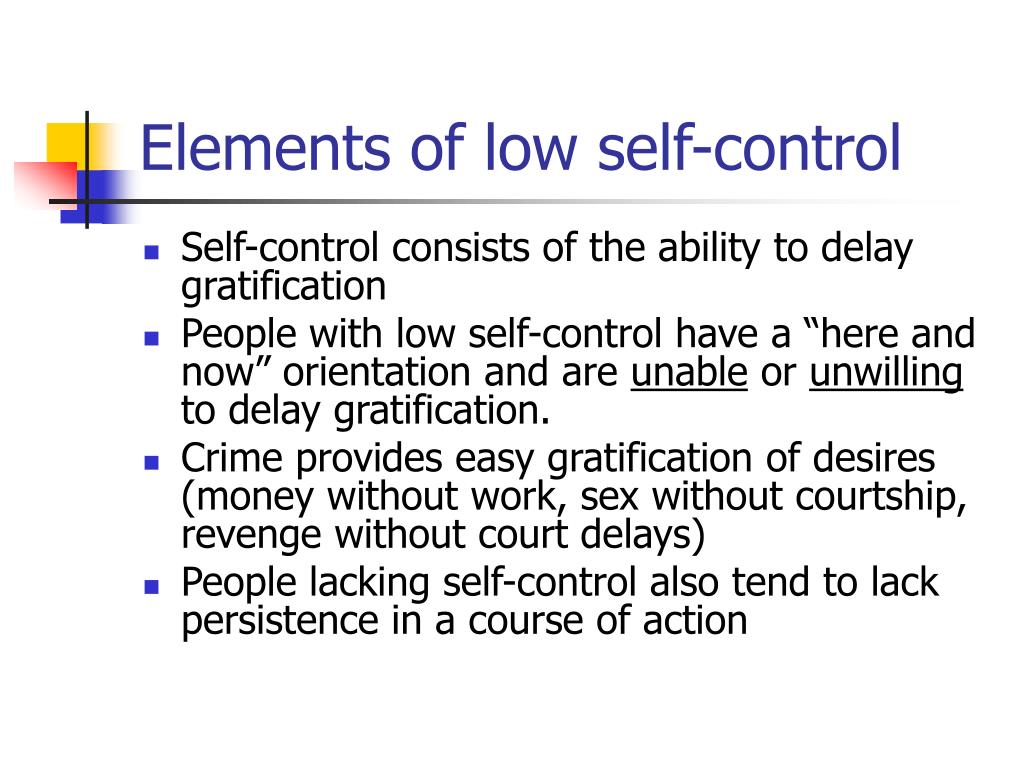

:max_bytes(150000):strip_icc()/psychology-of-self-control-4177125_v2-1519c48033f94be783e79f3adce2821d.png)

